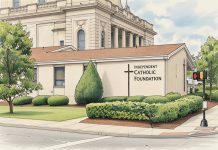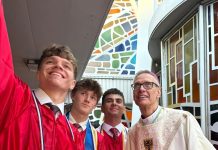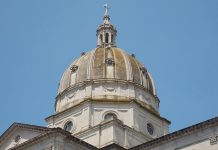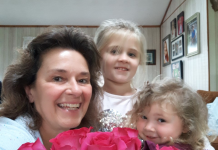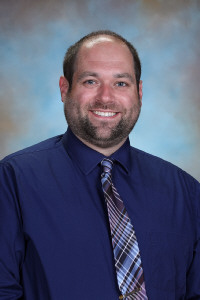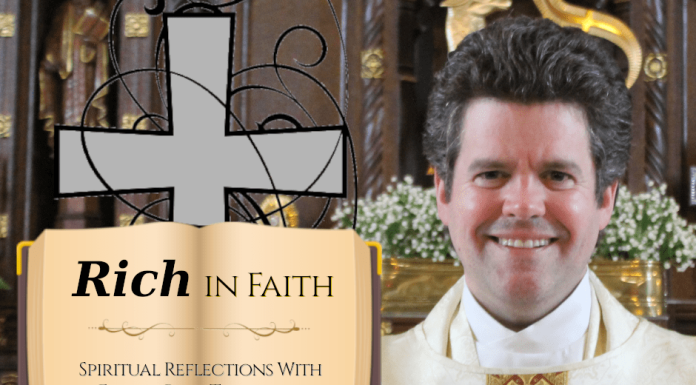Column by Jonathan Nagy
The brilliant Albert Einstein was notoriously a forgetful person. Nicknamed “The Absent-Minded Professor,” he could not remember his own address or phone number. He once boarded a train and could not find his ticket. The attendant recognized Einstein and told him he knew who he was, and he did not need a ticket. Einstein remarked, “But if I don’t have my ticket, I won’t remember where to get off.” Despite his forgetfulness, Albert Einstein is regarded as one of the most intelligent people of the 20th century and even of all history.
Recently, I went to the grocery store after a long day at school. I needed to quickly grab a few items and get home to prepare my food for a tailgate party the next day at the Penn State football game. I selected my items and went to the self-checkout, monotonously scanning and bagging my purchases. I selected cash back and left the store. It was not until the next day that I realized I had left the store without my money. At first, I felt utter shock and stupidity at what I had done. I resigned myself to the fact that the next person came along, saw the cash sitting there, and pocketed it. I mentioned my story to a couple people close to me and they insisted that I contact the store just in case someone turned it in to customer service. I was reluctant to do so, because I felt it was my mistake and I should pay for my mistake, and in the process, learn a lesson about paying closer attention. Finally, three days later, I called the store. To my astonishment, a Good Samaritan had turned my money in, and all I needed to do was show up at the store with my receipt and ID and I could recover the cash!
I wish I could personally thank this Good Samaritan and give them a token of my appreciation. The employee stated they did not know who it was, so I intend on paying it forward with my lost and now found money. The entire incident left me thinking about several lessons, not just the one I was inflicting on myself with my forgetfulness.
First of all, just like with Albert Einstein, no one is perfect, and we all forget things from time to time. In fact, the word “forgot” appears 80 times in the Bible in various contexts. Most of these references are to God not forgetting us, or others forgetting our sins against them, but one verse from Psalm 102 emphasizes my point about forgetfulness: Withered like grass, my heart is overwhelmed, and I have even forgotten to eat my bread. (Ps. 102:4). The entire Psalm 102 is about an afflicted man pleading to God for mercy. That one verse illustrates that the man was so overwhelmed with his grief and anxiety that he forgot one of the most basic human actions. We all do that, and with my lost money, I was definitely guilty of that thought process. My mind was so occupied with other thoughts that I forgot to do a simple action. It is only when our minds are quieted that we are able to fully function. The same can be said for our prayer life, for only when our minds are at peace can we truly hear God speaking to us.
Secondly, I believe the event restored my faith in humanity. I try in my daily life to think positively from the moment I arise until I go to sleep, but I know I am not always successful, as it can be so easy to fall into the trap of having a negative view of society. I doubted that anyone would be kind enough to turn a large amount of money in at a very busy store. I doubted to the point where I did not even want to make a call to find out, because I had convinced myself that the cash would not be there. Honestly, I felt like Thomas, not believing until I saw the wounds of Jesus. Also, like Thomas, when I was informed that my money was indeed there, I exclaimed, “My Lord and My God!” My astonishment could not be overstated. I was reminded that there are good people doing good things all of the time.
Thirdly, even though I do not know the person who turned in the cash, I want to acknowledge their humbleness and humility. Not only did they turn the money in, they did so without wanting recognition or reward. Sometimes it feels rare that people can humble themselves and not want attention for their good deeds. One of the humblest men I can think of is Saint Joseph. Fully made aware of what his task on earth was to be, not once is it recorded that Saint Joseph sought the spotlight or credit for anything that he did. Often described as silent, humble, and obedient, much can be learned from the model of Saint Joseph. Even today, he is often overshadowed by other saints, even though Joseph had a major role in raising Jesus! In fact, the feast of the Holy Family was not even instituted until Pope Benedict XV did so in 1921. We can all take a lesson from Saint Joseph, humbly doing our work and our mission without seeking credit, recognition, or reward!
Fourth, we cannot underestimate the effects of a simple random act of kindness. The great Saint Terese of Lisieux, known for doing things for others and God in her own “little way,” once stated, “I want to be a saint, but I feel so helpless.” While many do not often think daily of achieving sainthood, we do contemplate if our actions make a difference. I personally would edit Saint Terese’s quote to read, “I want to make a difference, but I feel so helpless.” Reflecting on my experience at the grocery store, it is evident how that Good Samaritan’s one little act of kindness made such a difference, to the point where I am writing about it, hoping that many read this story and become inspired! Never overlook the power of simple, positive actions. We may never know the result of what we do, but they do impact others!
The fifth lesson is something I know I am guilty of daily, which is being too hard on myself. An old saying reads, “You are your own worst enemy,” which is very true. No one is harder on us than we are on ourselves. We set expectations, make lists, and develop affirmations, all with the fear of our own failure or shortcomings hurting us or others. As I stated earlier, no one is perfect. As much as I would like to think I can do anything and everything, I realize there are limits to my own abilities, but that does not stop me from trying and trying harder to improve. As Saint Catherine of Siena once exclaimed, “Be who God meant you to be and you will set the world on fire.” It is good to set goals, but we need to not be so hard on ourselves if we need others to help us along the way. In fact, God never intended us to be alone on this journey. There are people who want to help, some known and some unknown angels in disguise among us.
The final lesson I learned was the power of a simple prayer. I must admit that in my faith journey, one of my areas of struggle is private prayer. I love Mass, prayer services, group adoration, and song, but I have often struggled when it is just me and God. I am unsure of what to say, not wanting to sound too needy or helpless. I also do not want to sound patronizing to God in my praise of Him. I know I am not alone in this feeling. I have spoken with many adults and students who also struggle with this concept. We as humans question if prayer can do anything to help any situation. We must believe that it does! Before deciding if I was going to call and discover if my money was there, I said a simple prayer of, “God, please guide me in this process. Let your will be done.”
We can all say simple prayers throughout our day, Blessing ourselves as we drive past a church, saying a quick “Glory Be” or a blessing before and after a meal, or even a “Thank you God for everything” is heard loud and clear in Heaven. My friend likes to say the simple prayer of “Jesus Christ, Son of God, have mercy on me, a poor sinner.” I begin each of my class periods at Bishop Carroll Catholic High School with the prayer to Saint Michael the Archangel. I had a class ask me why I chose that prayer, and my response was, “Because the world needs help and protection, and I can think of no one better to do that in the Name of God than Saint Michael!”
I read a quote recently that said, “Pray so big and so often that when God meets you at Heaven’s gate He says with a smile, ‘Kid, you kept me very busy.” Praying without ceasing is tough but helpful! I sometimes feel like I am “bothering” God with endless prayers of supplication, but He wants to be asked! Just like any parent, He wants to hear from his children and will do anything to help each of us.
As I do with each of my class sessions, it is time to recap to lesson and the main points to be learned:
1. We all get forgetful and overwhelmed. Only when are minds are quieted can we hear God.
2. Do not lose faith in humanity. We are all created in the image and likeness of God and have the ability to do Christ-like actions.
3. We must humble ourselves to do things for others, even if it means no recognition or reward.
4. Never underestimate what a random act of kindness can do for someone else.
5. We cannot be so hard on ourselves and must look to others in times of need. God will provide to those who seek him.
6. Never forget to pray, and pray without ceasing!
Our time on earth is about the journey with sights on the destination. Each day is meant to be an improvement on the previous day, and we can only improve with the help of God. Seek him out. Seek him in others. Seek to become more like him by being something to another, even through the simplest and humblest ways. Above all, never “forget” that it is our faith in Christ Jesus that will save us, and what a glorious day that will be when we get to meet Him!
Jonathan Nagy, M.Ed., is the Dean of Students and Social Studies teacher at Bishop Carroll Catholic High School in Ebensburg. He is also the Music Director at the Basilica of Saint Michael the Archangel in Loretto.


